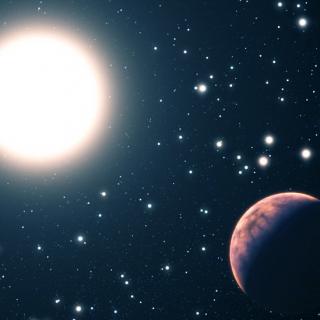Bibcode
Figueira, P.; Faria, J. P.; Delgado-Mena, E.; Adibekyan, V. Zh.; Sousa, S. G.; Santos, N. C.; Israelian, G.
Referencia bibliográfica
Astronomy and Astrophysics, Volume 570, id.A21, 6 pp.
Fecha de publicación:
10
2014
Revista
Número de citas
34
Número de citas referidas
28
Descripción
Aims: We study the impact of the presence of planets on the
lithium abundance of host stars and evaluate the previous claim that
planet hosts exhibit lithium depletion when compared to their non-host
counterparts. Methods: Using previously published lithium
abundances, we remove the confounding effect of the different
fundamental stellar parameters by applying a multivariable regression on
our dataset. In doing so, we explicitly make an assumption made
implicitly by different authors: that lithium abundance depends linearly
on fundamental stellar parameters. Using a moderator variable to
distinguish stars with planets from those without, we evaluate the
existence of an offset in lithium abundances between the two groups. We
perform this analysis first for stars that present a clear lithium
detection exclusively and include in a second analysis upper lithium
measurements. Results: Our analysis shows that under the
above-mentioned assumption of linearity, an offset in lithium abundance
between planet hosts and non-hosts is recovered. This offset is
negative, showing an enhanced depletion for planetary hosts, and is a
statistically significant result. By bootstrapping the error bars, we
concluded that an inflation on the lithium uncertainty estimations by a
factor of larger than 5 is required to render the measured offset
compatible with zero at less than 3-4σ and make it
non-significant. We demonstrated that the offset as delivered by our
method depends on the different nature of the stars in the two samples.
We did so by showing that the offset is reduced down to zero if the
planet-host stars are replaced by comparison stars in a mock planet-host
sample. The offset is also shown to be significant at 3.75σ when
compared with that of a population in which planet-host and comparison
tags are shuffled, representing a situation in which the tagging is
decorrelated from the presence of orbiting planets. Moreover, the
measured depletion is still significant when one imposes different
constraints on the dataset, such as a limit in planetary mass or
constrain the host temperature to around solar value. We conclude then
that planet-host stars exhibit enhanced lithium depletion when compared
with non-host stars.
Proyectos relacionados

Pruebas Observacionales de los Procesos de Nucleosíntesis en el Universo
Recientemente se han llevado a cabo varios análisis espectroscópicos de estrellas con planetas. Uno de los resultados más relevantes ha sido descubrir que las estrellas con planetas son en promedio más metálicas que las estrellas del mismo tipo espectral sin planetas conocidos (Santos, Israelian & Mayor 2001, A&A, 373, 1019; 2004, A&A, 415, 1153)
Garik
Israelian